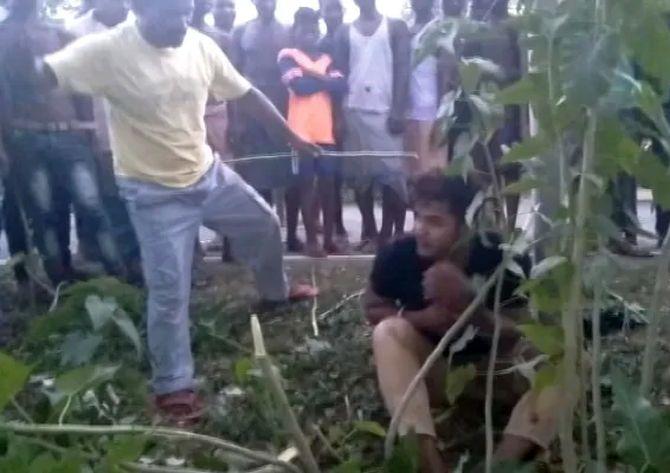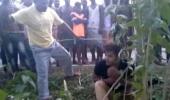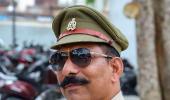Mohammad Sajjad raises important concerns about the response to lynchings.

It is increasingly becoming a trend that in each case of lynching, soon after outrage is expressed on (social) media, there comes out a parallel narrative of blaming the victim -- quite often alleging that the victim is a thief.
Partisan consumers of these news items refuse to see through such designs, as to why should an alleged thief be necessarily killed after being forced to chant religious slogans like 'Jai Shri Ram'!
Equally disappointing is the fact that sections of media identified to be liberal-secular, howsoever unintentionally, often appear to downplay any allegation about, or antecedents of, the lynched victim.
In March 2019, in a case of custodial death in Bihar's Sitamarhi of two Muslims (of Ramdiha, in Chakiya East Champaran), an almost similar journalistic omission was found. This extensively well-investigated report (external link) missed out on allegations that the two Muslim youth were wanted by the Sitamarhi police in a case of bike-snatching and killing of a couple.
Once such allegations are downplayed by the liberal-secular media, and are then pointed out by the majoritarian forces on social media in response to the liberal outrage, the whole story gets an unsavoury spin and complexity. It breeds suspicions and dilutes the degree of outrage.
Therefore, rather than ignoring any such concocted or true allegations, the responsibility of the liberal-secular forces is to sensitise and mobilise the masses that mere allegations of (or even conviction for) theft does not make one liable to be killed by a mob.
The lynching of Tabrez Ansari is yet another case like this.
Ansari belonged to Kadmadih village (in Adityapur block, near Jamshedpur, in Bharatiya Janata Party-ruled Jharkhand). He was caught by a mob in a nearby village, Dhatkidih, on the night of June 17/18. This is a village of 135 houses (626 persons) as per census 2011.
Tabrez was tied to an electric pole on the street and beaten mercilessly, and coerced into confessing that he was attempting to steal a bike, all video-recorded spectacularly.
Tabrez is said to be the 18th victim in Jharkhand in recent years.
As per reports, the bike in question was without a registration number.
Which villager of Dhatkidih is the owner of the bike that Tabrez is alleged to have attempted to steal?
What are his antecedents? Thus far, to the best of my knowledge, this question remains unanswered.
Another question that remains unanswered is: Did Tabrez have any reason to be in Dhatkidih on the evening of June 17? It has been reported that he was returning from Jamshedpur to his home village Kadmadih.
Did Dhatkidih fall on the route to Kadmadih? Or, did Tabrez Ansari have any specific, justifiable reason for having been in the village at the precise moment?
The 11 people of Dhatkidih arrested by the Saraikela police, and accused of lynching Tabrez, include a man called Pappu (Prakash) Mandal.
The local and national media have hardly reported much about the personal details, educational-economic profiles, political affiliations, etc, of the accused, whereas sections of local Hindi dailies, particularly Dainik Jagran, have published details about the village, and telling its readers that Kadmadih, a Muslim dominated village, is infamous for thefts and that the police have often recovered stolen items from the village.
Generally, the local sub-regional editions of Hindi dailies are very particular about reporting on theft, as such reports are quite popular among semi-literate news consumers.
Yet, the spectacularly videographed incident remained unreported in these Hindi dailies on the following day, and was reported only after Tabrez's death.

As per reports, till Tabrez was in police custody, the collusion between the local police and alleged offenders like Pappu Mandal was too evident.
Thus, besides the criminal justice procedures and the role of the police, there is a pressing need to examine the role of these kinds of local vernacular media.
Civil society groups as well as the relevant agencies of press ombudsman must examine the role of vernacular dailies.
A quick rebuttal to these incendiary and misleading news reports should be (and have been) brought out.
It needs to be added that at least since the late 1980s, sections of the vernacular media have been playing a vicious role in communalising the social space, particularly in the Hindi belt.
In the initial reporting about Tabrez's eventual death, why did the liberal media omit the allegations of his attempt to steal a bike?
For about four days, the grievously, in fact fatally, injured Tabrez was in police custody and jail. Yet, the civil society committed to providing legal aid to lynch victims remained uninformed, because of which no intervention could take place.
Such an intervention could have ensured proper medical care to the unfortunate victim.
Another pertinent issue is: Pasmanda (backward Muslim) activists, mainly confined to social media, have all along been saying that most of the lynch victims are from Pasmanda locations. What they have been downplaying is that most of the lynch perpetrators are from a Dalit-Bahujan background.
It is therefore necessary to explore how have they been communalised and made to hate similarly located counterparts of theirs.
Sections of Dalit-Bahujan activists as well as Pasmanda activists have been advocating and working for the unity of the oppressed caste groups, transcending, even dismissing, religious identities.
Lynchings have been rising along with growing majoritarianism, despite such efforts at resistance and solidarity.
This should make all justice-loving people introspect as to where they are failing and why and how the hate-mongers are succeeding in winning over these groups to the side of anti-Muslim hatred.
In my limited (and maybe flawed?) understanding, what I observe is that such social media activism is confined to insisting on identitarian representation in politics/legislature and public employment.
Proportionate representation of the oppressed groups in the structures and processes of power is a prerequisite. It must be insisted and accomplished.
But does it mean that it should be done by ignoring many other no less important efforts such as intervention to provide legal aid to survivors, mobilising and monitoring funds to extend financial help to rebuild the life of the victims, and strengthening solidarity to resist such hate-crimes, etc?
One observed a similar failure in the case of encephalitis deaths of malnourished children in Muzaffarpur in June 2019. In the efforts to extend charitable medical help to prevent and manage the tragedy, one could see an obvious absence/under-representation of doctors from OBC/Pasmanda locations.
Worse still, pointing it out on social media met with abusive and hate-filled trolls who resorted to bigotry and intolerance.
Pertinently, no activist with scheduled caste and Hindu OBC identity was among them; only Pasmanda activists came out to troll me on social media. In fact, some Hindu OBCs frankly admitted that doctors from the oppressed social groups must have come out to rescue the children.
Most of these poor malnourished children were from oppressed castes, such as Paswan, Musahar (Manjhi/Rishideo), Mallah (Nishad), and other most backward Muslim communities, as this report (external link) points out.
Let it be noted that, in Muzaffarpur, the runner-up in the Lok Sabha election was a doctor from the Nishad community.
Similarly, advocates from such locations should join in to help out the survivors of lynch victims in their judicial battle.
In this era of ominously communalised society, politically and administratively backed hate crimes, and a comatose Opposition, the fight for justice and efforts to build solidarity have many lessons to be learnt.










 © 2025
© 2025